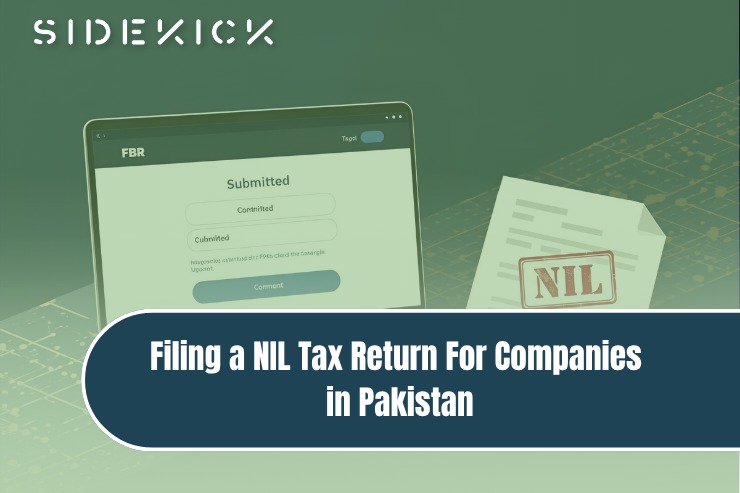Pakistan has become an important player for worldwide service platforms to find freelancers working in IT, design, writing, and other fields. As many people have started freelancing, they must understand proper tax handling.
A freelancer needs to handle taxes correctly to stay within the law, avoid penalties, and apply tax relief correctly. This article shows Pakistani freelancers everything they need to know about their tax requirements, including registration steps, tax benefits, and reporting rules.
Tax Implications for Freelancers in Pakistan in 2025
Like ordinary employees in Pakistan, freelancers must sign up for their tax requirements. Under Pakistan tax regulations, the Federal Board of Revenue treats freelancers as taxpayers whose earnings exceed specific income limits. In 2025, Pakistani taxpayers who make PKR 600,000 or more annually must follow tax regulations. Any income above this amount will be paid taxes according to the tax rate steps.
As a freelance professional who serves international clients, you must submit your normal income taxes to FBR. The Federal Board of Revenue reviews all payments you send to clients abroad using Payoneer, PayPal, and direct bank transfers. When Pakistani freelancers plan their tax obligations formally, they need to show all income accurately and include expense records to reduce their tax responsibility.
Registering with the Pakistan Software Export Board (PSEB) as a Freelancer
Freelancers from the IT sector should sign up for the Pakistan Software Export Board (PSEB) services. Registration provides several benefits, such as:
- Recognition as an IT Exporter: Freelancers qualify as IT Exporters to receive special tax benefits.
- Reduced Tax Rates: IT exports receive lower tax rates than other industries if freelancers are registered with the PSEB.
- Support and Grants: PSEB registration allows you to apply for financial assistance and grants for skill development.
To Register with PSEB:
- Start your PSEB registration by signing up on their official website account page.
- Provide your CNIC and NTN numbers and your portfolio as a freelancer.
- Fill the registration form and submit it to log in to your PSEB portal account.
For more information on PSEB, please read our blog here.
Taxation of Exports Related to Freelancing
One of the main advantages of freelancers in Pakistan is that there is no tax on IT exports. Income earned from the export of computer software, IT services, or IT-enabled services is exempted from income tax in Pakistan till June 30, 2025, subject to the condition that at least 80% of the export proceeds are remitted into Pakistan through normal banking channels.
Exported services by freelancers shall be taxed at 1% and can be reduced to 0.25% if they are registered with the Pakistan Software Export Board. Proper documentation of all transactions regarding bank statements, invoices, and contracts is required to prove the export income. As a result of not reporting their correct income, a freelancer may lose this benefit as well as suffer penalties.
How Freelancers in Pakistan Can File Their Taxes
Freelancers’ tax filing is less complicated when done properly. Follow these steps to file your taxes efficiently:
Obtain a National Tax Number (NTN):
- Go to FBR’s IRIS website to register for tax services.
- Put your personal information, income, and bank details into the system.
Maintain Accurate Records:
- Create a complete list of your business spending and income.
- Keep all invoices, bank statements, and receipts you need to claim for business expense deductions.
Declare Income Accurately:
- Enter all income you received from freelancing sites and business clients into your tax report.
- Make sure you properly categorize your income (domestic and foreign income).
Deduct Allowable Expenses:
- Working as a freelancer allows you to deduct expenses such as internet bills, digital tools, office equipment, and office space expenses.
- Provide the FBR proof of your documented qualified business expenses to prevent audit problems.
File Tax Returns Online:
- Go to the FBR’s IRIS portal and enter your login credentials.
- Use the income tax return form to report all earnings while showing your qualifying deductions and credit amounts.
- Make sure to submit and file your tax before the deadline to avoid penalties and fines.
Tax Exemptions Available for Freelancers
Freelancers in Pakistan can leverage several tax exemptions to reduce their taxable income:
- IT Export Income: From now until June 2025, you won’t have to pay taxes on your income from IT and IT services exports contingent on a condition.
- Small Business Tax Credits: Freelancers working as sole proprietors qualify for special tax breaks and small business credits.
- Donations and Investments: Giving money to certified charities and government programs can lower your income tax.
- Utility Expenses: Freelancers can get claims for their internet and electricity bills if they use them for work
Freelancers in Pakistan must know how to use tax allowances when preparing their taxes.
Tips for Effective Tax Planning
- Consult a Tax Expert: Navigating multiple tax laws can be difficult. Hire a tax advisor to help you comply with all the rules and obtain the best possible financial advantages.
- Separate Business and Personal Finances: Having one bank account for your freelance work helps you easily track your money.
- Stay Updated on Tax Laws: Changes in tax rules happen often. Watch FBR announcements to learn about new rules affecting how you freelance.
- Use Digital Tools: Use QuickBooks or other software to manage your money and expense records and complete tax returns.
- Plan for Deadlines: Mark important tax due dates on your calendar so you won’t have to pay fines for filing late.
Simplify Tax Filing with Sidekick’s Expert Services
As a freelancer, dealing with taxes can test you, but Sidekick simplifies this process. Our expert team guides you through all tax areas, from income reporting to taxpayer benefits, no matter your current understanding. We offer Pakistani freelancers professional help to meet FBR tax rules while finding ways to save on their taxes.
Sidekick takes all the complicated steps from beginning your PSEB registration to claiming your tax deductions to make it easier for users. Our expert team will handle your paperwork, allowing you to grow your freelancing business. Join Sidekick now to experience easy tax solutions and professional expertise.
Final Thoughts
As a Freelancer in Pakistan, you need Tax Planning to stay compliant and secure your financial future while optimizing your income. Freelancers can successfully handle their tax duties by learning about taxes, working with the PSEB, and using their exemption privileges while following a proper tax filing method. Doing your part to stay updated and act in advance helps you freelance smoothly while following Pakistan’s tax rules correctly.







